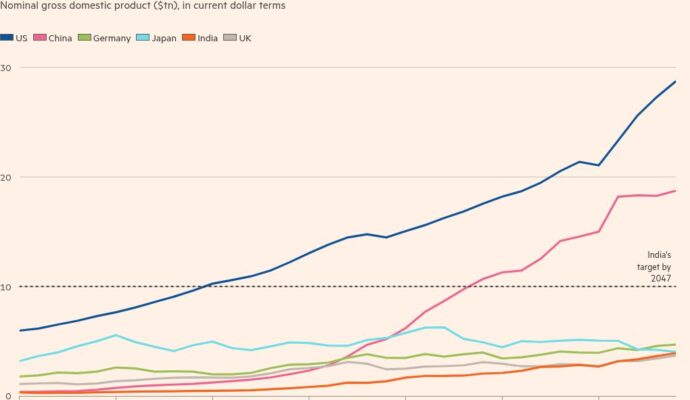Stay informed with free updates
Simply sign up to the Financial & markets regulation myFT Digest — delivered directly to your inbox.
South Korea’s central bank is clashing with lawmakers over how to regulate one of the world’s largest cryptocurrency markets amid fears that frenzied demand for stablecoins is stoking capital outflows.
The ruling party has proposed legislation allowing companies with as little as Won500mn ($360,000) in equity capital to issue won-based stablecoins, a type of cryptocurrency backed by fiat money holdings.
But the central bank is concerned that allowing their issuance could spark massive capital outflows that would hamper its ability to respond to foreign exchange crises such as the one that swept across Asia in 1997. That has put the Bank of Korea at odds with the government.
“If we allow non-banks to issue stablecoins, this will cause big chaos like in the 19th century, when currencies issued by the private sector flooded [the market],” Bank of Korea governor Rhee Chang-yong said this month, referring to the US “free banking” era when hundreds of small banks were allowed to issue their own notes.
Rhee has instead argued that only commercial banks be allowed to issue stablecoins under strict oversight, triggering frustration among some ruling party lawmakers.
“Stablecoins are surging like a tsunami, but we are fighting over who will run a small boat in the face of a tsunami,” Min Byung-duk, the lawmaker who proposed the legislation, said in a presentation at the National Assembly this week.
About a third of South Korea’s 52mn people invest in digital assets, making it one of the world’s most vibrant crypto markets. Retail investors’ digital assets totalled more than $70bn at the end of last year, according to the central bank.
Dollar-backed stablecoins are particularly popular, with more than $19bn of the asset taken out of the country in the first quarter of this year, according to regulatory data. Most investors use them to buy crypto on overseas exchanges, where digital assets are often cheaper because of regulatory barriers and higher demand relative to supply in South Korea, according to a survey by Seoul-based investment group Hashed Ventures.
Stablecoins can facilitate capital outflows because investors can buy them with won at local crypto exchanges and move the coins to digital wallets, where they can be easily converted to dollars abroad. The outflows have so concerned the Bank of Korea that last month it lifted a 14-year ban on domestic institutional purchases of onshore foreign-currency bonds in order to draw in offsetting inflows.
The ruling party believes won-backed stablecoins can ensure money stays in the country. Min has urged lawmakers to set up a regulatory framework for stablecoins as soon as possible, especially after the US Congress passed a law doing the same.
“This is our last chance to take some portion of the market even if we can’t outsmart dollar stablecoins as a settlement tool,” said Min. “Speed is the key.”
The Bank of Korea has cautioned that won-backed stablecoins can still accelerate outflows because they can be easily converted to dollar-backed ones.
But even it has had to acknowledge growing demand for the assets. Last month, it suspended plans to roll out a central bank digital currency. Analysts said it was unlikely to be used widely if the private sector were to issue won-backed stablecoins, and banks were reluctant to shoulder the costs of the CBDC, according to people close to the companies.
Companies have already started working on stablecoins, anticipating the legislation will pass. Eight commercial banks are jointly working on a won-backed stablecoin with a target launch date of 2026, while Upbit, the country’s biggest crypto exchange, and payments company Naver Pay are collaborating on one as well.
Kim Hyung-joong, a professor of information security at Korea University in Seoul, said won-backed stablecoins could be used as a viable payment method, but he did not expect them to dent demand for dollar-backed stablecoins “because of different usages”.
DH Kim, a dentist who uses dollar-backed stablecoins to purchase cryptocurrencies on foreign platforms such as Binance, shrugged when he was asked if he would buy won-backed stablecoins.
“It could be widely used but do I have to buy them?” he said. “Not really.”


